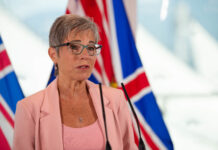NOW in its third year, the Speculation and Vacancy Tax (SVT) is raising significant revenue that goes directly into affordable housing in the five regions where the tax applies, while encouraging owners to rent or sell vacant units to those who need them.
“We have been through a lot together over the past two years, and I know no one is immune to the effects of the challenges facing our housing market,” said Selina Robinson, Minister of Finance, on Wednesday.
“In B.C. and across the country, a combination of factors, including low interest rates, changing preferences, and low supply have added fuel to an already volatile housing market. Through measures like the speculation and vacancy tax we are taking action and turning empty houses into rental homes for people, while making sure that we continue to build a record level of homes as part of our 10-year housing plan,” Robinson said.
For the 2020 fiscal year, the SVT is expected to raise $81 million, bringing the three-year total revenue to $231 million. During the same period, the Province has invested approximately $2.8 billion in housing in the five regions covered by the SVT as part of the 10-year housing plan Homes for B.C.
Each year, the Ministry of Finance consults with mayors from areas where the tax applies. This annual consultation is an opportunity for the ministry to share data and analysis generated from the tax with mayors and gather feedback. Mayors will soon receive region-specific 2020 SVT data for their communities. This will help inform the consultation about how the tax is working in their regions and help determine if any changes are necessary.
Data from 2020 SVT declarations indicate:
* More than 99% of British Columbians are exempt from paying the tax for the third year in a row.
* Foreign owners and satellite families are paying the majority of the tax for the third year in a row.
* The SVT continues to generate revenue for affordable housing; SVT revenue is projected to be $81 million for this calendar year.
* An increasing number of property owners who are subject to the tax, particularly those at the highest rate, are selling or renting their properties.
* Behavioural changes from a variety of measures are adding homes to the market.
“We brought in the 30-point plan because we know that no single measure will bring affordability to our housing sector,” Robinson said. “Combined, and working with all orders of government and other partners, we can address the problem of unaffordable housing in B.C.”
The 10-year housing plan is improving housing affordability in B.C. by:
* delivering 114,000 affordable homes in partnership over 10 years;
* adding more than 30,000 homes to the market that are already complete or underway;
* investing in the HousingHub that has more than 3,700 homes completed or underway through partnerships with private and non-profit developers throughout B.C. for households with an average annual income of $75,000; and
* shining a light on hidden ownership with both the Land Owner Transparency Registry and the Condo and Strata Assignment Integrity Register.
The SVT also continues to deliver on its goal of ensuring housing is used for homes, not speculation, with the Canadian Housing and Mortgage Corporation (CHMC) Rental Market report released this year showing that various government policies, including SVT, helped encourage the owners of 7,137 condos in Metro Vancouver to rent them out in 2020, on top of 11,118 in 2019. Over the two years, more than 18,000 vacant units are now providing much-needed homes to families across the region.
Learn More:
To learn more about the speculation and vacancy tax, visit: www.gov.bc.ca/spectax












